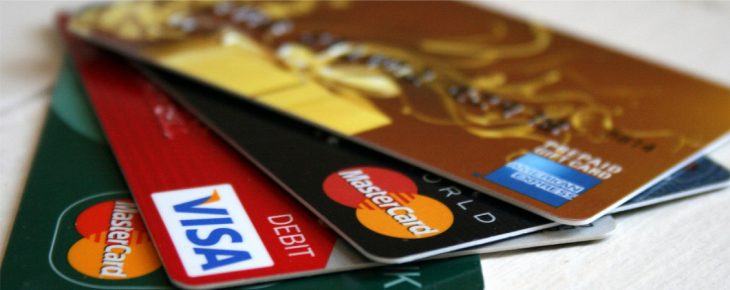Credit card debt surpasses record $1 trillion in the fourth quarter
by March 8, 2018 7:37 pm 459 views

More American consumers are reaching for the plastic in their wallets helping to push outstanding credit card debt past the $1 trillion mark in the fourth quarter, according to a WalletHub study of Federal Reserve data.
Economists aren’t concerned with the rising credit card debt given the strength supporting the customer behavior. Despite volatility in the equity markets of late, unemployment remains low, housing prices are rising and corporate earnings also represent solid financial footing for many sectors of the economy.
Consumer sentiment rose last month to its second highest level since 2004 because of their take on the economy.
“Consumers based their optimism on favorable assessments of jobs, wages, and higher after-tax pay,” said, Richard Curtin, director of the University of Michigan consumer survey. “Economic news heard by consumers continued to be dominated by the tax reform legislation and net job gains, which was untarnished by the consensus view that interest rates would increase and stock prices would remain volatile.”
The WalletHub study found the average household owes $8,600 in credit card debt, up $138 over debt reported at the height of the Great Recession. Consumers rang up $67.6 billion in additional credit card debt during the fourth quarter, marking the highest quarterly accumulation in 30 years, according to the study.
Researchers at WalletHub did voice concern with the data warning credit card statistics can foreshadow over-borrowing bubbles, changes to lending standards and other trends that can impact consumer wallets. The study noted recent debt levels are worrisome given the borrowing trends, with consumers adding $92.2 billion to credit card debt during 2017, up 6% from the prior year. Only four times in history have consumers spent that much on credit in one year, according to the report. In each of those prior cases the charge-off rate rose the following year. The charge-off rates are hovering near historic lows, but the researchers warn it doesn’t take much kindling to fuel a fire.
“It’s not a question of whether consumers are weakening financially, but rather how long this trend toward pre-recession habits will last and just how bad it will get,” notes Alina Comoreanu, senior researcher at WalletHub.
She said consumers are optimistic about their credit card debt and 92% of consumers surveyed anticipate having less debt by year-end.
Other notable insights from the report include:
• 35% of people think travel is worth getting into debt for;
• About 10% of consumers said they don’t remember what they purchased to ring up the credit card debt;
• 70% said they think we are two years away from another recession given the already long length of this positive business cycle; and
• 88% say they do a better job running their personal finances than the U.S. Government does managing its spending.
National economists say signs to watch include rising delinquency rates on credit card payments which is not yet an alarming issue. Many consumers are also getting a default raise from the lower tax rates which average $2,000 for a family of four earning $70,000 annually. A couple earning $110,000 with no children would see about $1,200 in lower taxes. A single parent earning $40,000 would see about $1,300 in tax savings, according to tax calculators available online. This added income could also be feeding consumer exuberance, researchers warn.
Credit counselors recommend the following steps to help consumers manage their credit card debt.
• Stick to a budget
• Build an emergency fund
• Improve credit rating
• Look for opportunities to transfer card debt to 0%, to pay off sooner
• Repay the highest interest cards back first
• Look for ways to increase income to help pay down the debt faster
Arkansas is not considered a high tax state and a recent report from Credible.com indicated consumers in the Natural State ranked second in the nation at managing their credit.
The state has lower credit card debt, cost of living and expenses, compared to other states, but the study might not have considered the large number of Arkansans who don’t have bank accounts and look to other avenues to pay expenses, such as payday loans, said economist Mervin Jebaraj, director for the Center for Business and Economic Research at the University of Arkansas.
